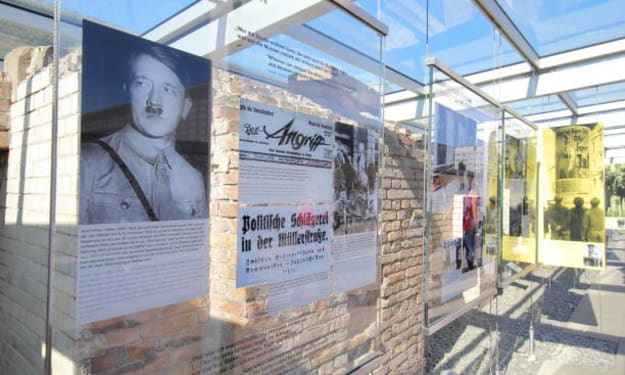Harry Potter and the translator's nightmare!
Unlocking Language: Harry Potter's Epic Journey through the Translator's Nightmare - A Tale of Magic, Misunderstandings, and Multilingual Marvels!

In 1997, JK Rowling published Harry Potter and the Philosopher's Stone. But most of her audience did not read the book. They read Harry Potter and the Philosopher's Stone. or Harry Potter A L'Ecole des Sorciers Harry Potter va Sang-e Jadu Harry Potter y la Piedra Filosofal The attractive books of Harry Potter reached readers in more than 200 territories in more than 60 languages. Authorized translations came from separate publishers without author verification.
Thus, the translators' task was not only to adapt the text from English to their target language and culture, but also to make assumptions about Rowling's intentions and translate the spirit of her approach. Their task was particularly challenging because the Harry Potter series is full of made-up words, alliteration, puns and British cultural references. First names of protagonists: Harry, Hermione, and Ron remained mostly the same across languages, with minor changes to accommodate different alphabets and phonetics. It's easy enough for traditional names like Harry Potter.
But many of the other proper names in the book have loaded meanings - meanings that are lost if not translated. Take Severus Snape. The name implies seriousness and sounds like "snake". So an Italian interpreter jumped in and named him Severus Piton, which is basically python. In French, he is Severus Rogue, meaning Severus "arrogance". As you can tell, both solutions sacrificed Rowling's alliteration. The name "Hogwarts" combines two English words, but since the name remained the same in most languages, these connotations were lost on their readers. To keep Rowling's access to the name of the school, the French translator used the word "Poudlard". "Pou du lard" means lard or fat. The Hungarian version included "Roxfort", a mixture of the British University of Oxford and Roquefort, a well-known blue cheese.
House names and founders have also undergone unique adaptations in some target languages. In Catalan, the names were: Nícanor Griffindor, Sírpentin Slytherin, Mari Pau Ravenclaw and Horténsia Hufflepuff. There are also many puns in the Harry Potter books. The famous Diagon Alley, a play on the word "diagonally" and the infamous Knockturn Alley, a play on the word "night". This kind of wordplay is a real puzzle for translators, and most have abandoned it in favor of literal translations. At least the Spanish translator was able to rhyme with "callejón diagon". And the translators had several approaches to Quidditch, the fictional game made up of the fictional words Quaffle, Bludger and Snitch, the three types of balls used in the game. In Spanish, the words were not changed.
The French translator kept the word quiddity, but changed the names of the balls. And others have completely changed the name of the game. Quidditch in Dutch is "Zwerkbal". In Norwegian it is "Rumpeldunk". OWLS and Newts, standardized tests in the wizarding world, have not always kept their animal abbreviations. But in Swedish, their assumed meanings remained, although the wording was changed. Owls became Grund Examen i Trollkonst, or G.E.T means goat in Swedish. And the NEWTs were changed to the Fruktansvärt Utmattande Trollkarls test or F.U.T.T., which was derived from the word "futtig" meaning average or average. Many translators changed the infamous anagram of the name of Tom Marvolo Riddle to have the same revelation as "I Am Lord Voldemort". In Danish, Tom is called "Romeo G. Detlev Jr." and in French he is "Tom Elvis Jedusor", which was particularly clever because "Jeu du sort" means "riddle of fate".
Culturally the Harry Potter series is undoubtedly British, but translating it to a global readership was not easy. Some foods have been modified to make them less foreign to the destination country. Sweets popular in Britain became sherbeted lemons, which became krembo, an Israeli chocolate-covered candy. Persian became potato chips in the US and bacon and eggs in the Arabic version. Sometimes they are also translated into a foreign environment. For the Ukrainian translation, the atmosphere of an English boarding school was changed to an orphanage. In the books and movies, Hagrid has a provincial western accent. Hagrid: "No? Blimey Harry, have you ever wondered where your mum and dad learned everything?" "You are a wizard Harry." In Japanese translations, it was transcribed using the Tōhoku dialect, a pastoral accent from northeastern Japan. Other translators chose to simply have Hagrid speak more informally, while others left out his accent.
Despite the efforts of the translators to remain faithful to the text, some things were still lost in translation. Mainland Chinese editions of Harry Potter included footnotes to explain puns and cultural references. The Spanish translator sometimes used italics to indicate a made-up word without translation. But at the end of the day, it doesn't matter if you read Harry Potter and the Philosopher's Stone or its many translations. One thing that always seems to come up is fans around the world sharing stories about "The Boy Who Lid".
Like what you read? Consider liking and subscribing for more! :)






Comments
There are no comments for this story
Be the first to respond and start the conversation.